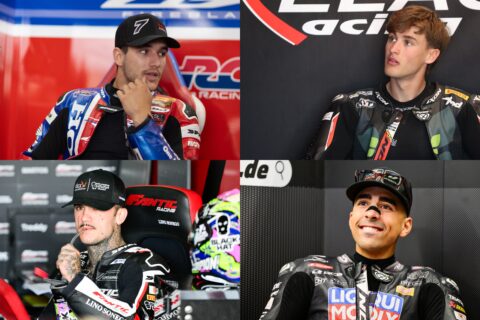Honda's withdrawal from the British Superbike Championship is a stark reminder of just how difficult it is to attract sponsorship into our sport. When the championship winners can't either persuade their existing sponsors to continue, after just two years, or find a new one then it is a bad job indeed. But not entirely unusual or, indeed, surprising.
Samsung, presumably, had good value from the odd million they put it. And that, presumably. Is loose change to the South Korean electronics giant. But it perhaps illustrates how the game has changed with every pound of marketing spend being measured and even Samsung, which makes most of its profits from mobile phones, pruning its marketing budgets.
Of course, one might argue that motorcycle racing is not high on the list of priorities of marketeers or chief executives of multi-nationals who probably still see the participants. and their fans, as being (at worst) Hells Angels or (at best) habituees of the Ace Cafe. And it can also be argued the sport does not sell itself well. Raising money is a hand to mouth job, frequently short term, and not a single UK rider is, sadly, well known to the general public. Gone are the days of Barry Sheene.
We are constantly reminded of a very different situation in Spain where racing is behind football but ahead of most other sports, including F1. They also have every world champion in the premier classes, four MotoGP events, a great feeder system and the promoter Dorna also happens to be Spanish. Nevertheless, now the cigarette money has gone, it does not attract mega-bucks like other sports.
It must, therefore, be amusing (sort of ) when fans read about the troubles faced by Formula 1. Troubles? Well, Mr Ecclestone seems to being having some trouble, being sued by German bank and others, over the sale of F1 to a private equity company CVC - former owners of MotoGP - some years ago. Now the case is being looked at by the UK's Serious Fraud Office.
But when you read in an article headed "Five Ways to Revitalise F1" by respected journalist David Tremayne which reveals that it costs Red Bull a tasty $300m to go racing every season you say "I'd like that sort of trouble" or wonder if the world hasn't gone completely mad.
That is the trouble, of course. Tremayne brings us down to earth by disclosing that back-of-the-field teams only spend about $100m and, relative to the top four teams, that is not enough and they are in financial trouble. At least a third of the drivers pay for their drive, up to $20m, from personal sponsorship.
Interest in this form of motor sport has been flagging and with the result of this year's series being decided well before the finish - most money, best car, best driver - something more than technological trickery like drag reduction systems (DRS) or rather more down to earth tactics like forcing the tyre manufacturer to produce tyres which wore out quickly, are required. He suggests: 1) A team budget cap - tried before but couldn't be policed; 2) Make drivers more accessible and more honest, reign in the spin doctors; 3) Make sport less elitist, cheaper tickets; 4) Control aerodynamics; 5) Promoters should take less and invest more.
All these will ring bells among motorcycle fans. And the organisers are going some way towards it. But so much more can be done. Controlling costs is the big thing, necessary to have a full and competitive grid. But what will appeal to fans most are his views on ticket prices and promoters taking too much out of the sport.
According to Tremayne, the F1 owners CVC take more than half the £1.4bn that is generated in revenue. He suggests that is far too much and more should be invested in the grass roots, including encouraging young fans, and in promoting the sport? Anybody listening? Not the investors you can bet.
ALL SHOW, NO GO
As an exercise in humiliation the FIM Gala in downtown Monte Carlo takes some beating. After being flown on to Nice, provided with chauffeur driven transport, including the quarter of a mile from their luxury hotel to the presentation ceremony, the greats of motorcycle sport were allowed to say... nothing.
Well, not strictly true. As Rider of the Year, Marc Marquez, was allowed to utter a few platitudes via presenter Matt Roberts and various others from the endurance, off-road or ice racing world among the 40-odd world champions uttered the odd word.
But what did the 400-odd dinner suited guests get from the likes of Tom Sykes, Pol Espargaro et al in the two hour ceremony? Not a word. After receiving a medal, a handshake and a smile from FIM President Ippolito, they were quickly ushered from the stage. Even road racing 'legend' Phil Read was granted airtime - well ,he was presenting the road racing medals - but no sooner had he started reminding us that he had won more GPs than the rest put together, he was quickly silenced.
This sort of tedium is not unusual at celebrity dinners or awards ceremonies - our own ACU is a case in point although usually at a somewhat less glamorous location - and it is important to recognise achievment even though a particular branch of sport does not make headlines. The success of the Classic TT was damaged by a VIP dinner which went on so long that the chief guest, one Giacomo Agostini, had gone to bed by the time presenter Neil Hodgson invited him onto the stage. The clock had struck midnight.
But it can surely be done better.And people who have either paid a lot of money or gone to considerable trouble to attend (or both) deserve to be entertained, with more thinking being given to presentation. This is show biz after all.


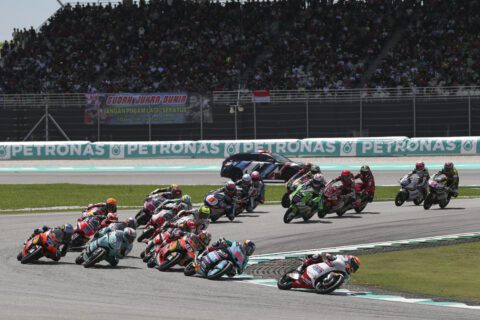
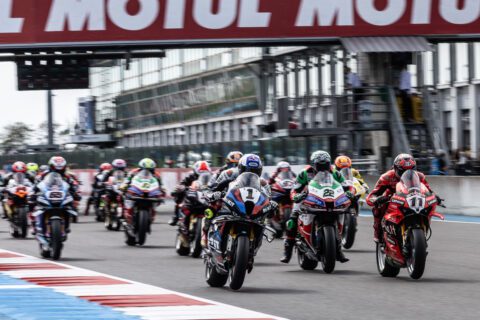
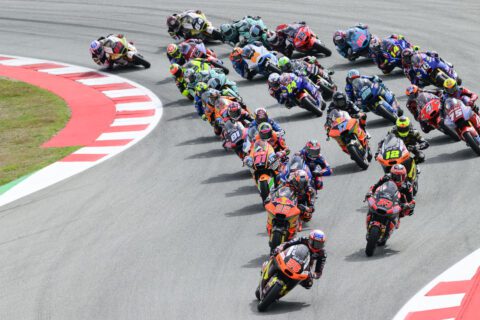
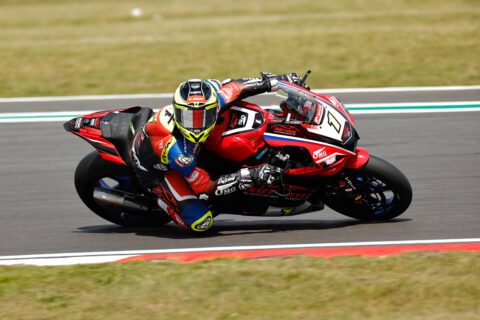
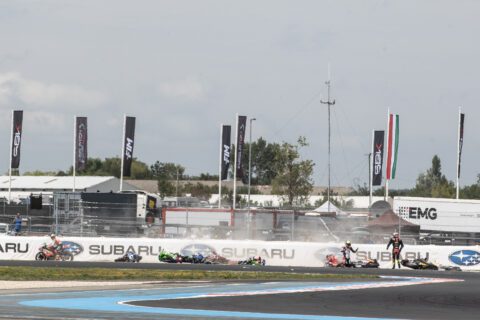
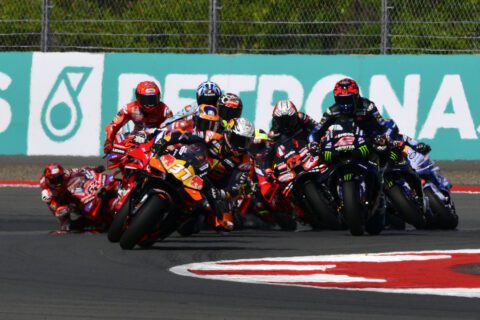
![Shane Byrne, Monstermob Ducati, 2003 WorldSBK, action [Gold & Goose]](https://bikesportnews.com/wp-content/uploads/2025/07/Shane-Byrne-Monstermob-Ducati-2003-WorldSBK-action-Gold-Goose-480x272.jpg)
